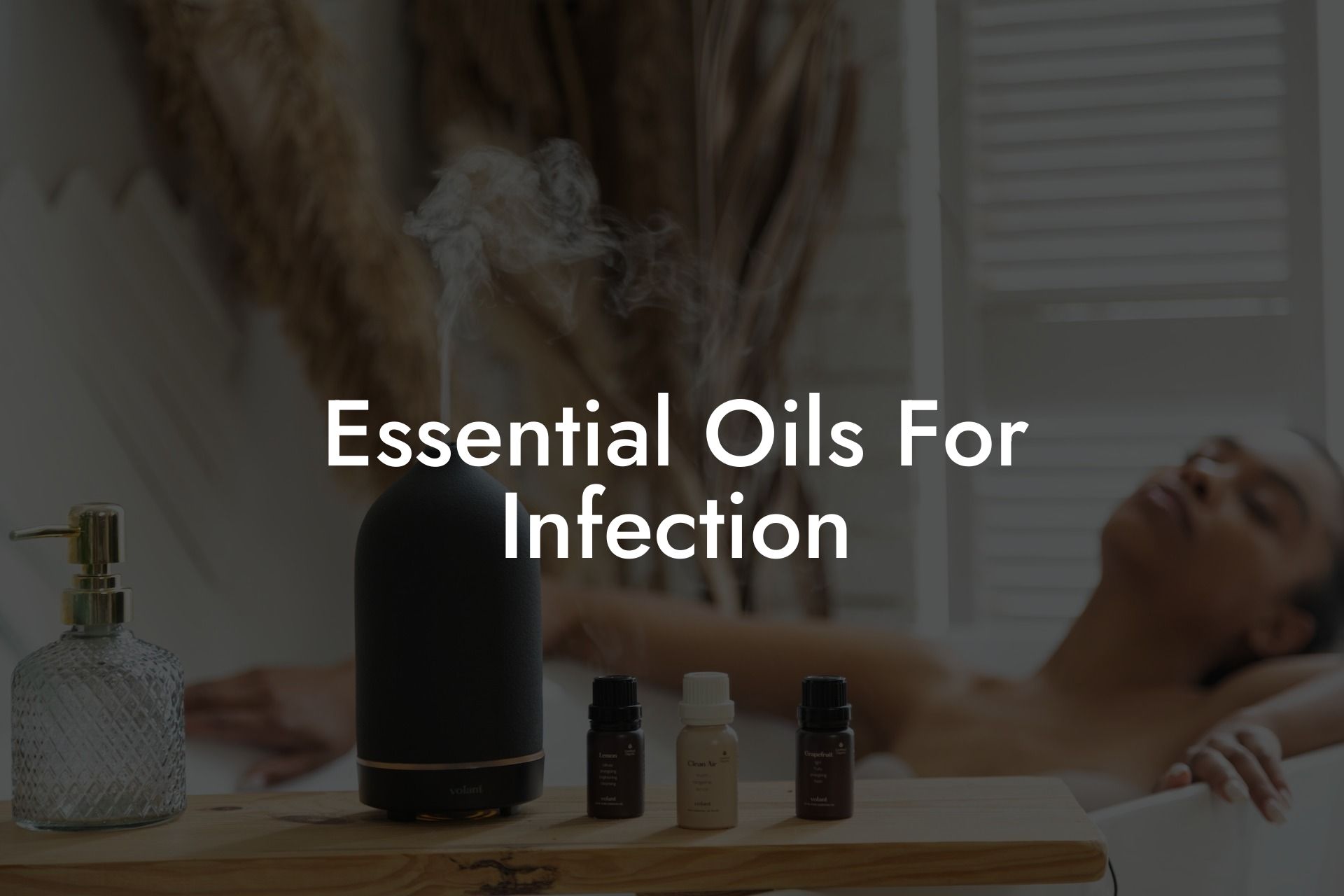In a world overwhelmed by synthetic medications and seemingly never-ending health concerns, essential oils have emerged as a powerful and natural solution to address various ailments. One of the most sought-after benefits of these oils is their ability to combat infections. From viral to fungal, essential oils have shown tremendous promise in supporting our bodies’ natural defense mechanisms against pathogens. Join us in this article as we explore the incredible journey of essential oils in preventing and fighting infections, and learn how to harness their power in your everyday life.
Table of Contents
The Science Behind Essential Oils and Infections
Essential oils are highly concentrated plant extracts that contain volatile aromatic compounds. These compounds, primarily terpenes and phenols, are responsible for their unique properties and benefits. The ability of essential oils to fight infections can be attributed to these various compounds, which may have antibacterial, antiviral, antifungal, and anti-inflammatory properties.
Antibacterial Effects
Certain essential oils, like tea tree, lemongrass, and eucalyptus, have been found to be effective against a range of bacteria, including Staphylococcus aureus, Escherichia coli, and Pseudomonas aeruginosa. Many of these oils work by disrupting the cell membrane, leading to bacterial cell death.
Antiviral Effects
Some essential oils have shown promising results against viruses, including thyme, oregano, and clove. These oils can help to neutralize viral particles and interfere with viral replication, therefore reducing the severity of infections.
Antifungal Effects
Essential oils like lavender, patchouli, and geranium have been found to be effective in combating fungal infections, especially when it comes to Candida species. The antifungal action is primarily due to their ability to disrupt fungal cell membranes and inhibit spore germination.
Using Essential Oils for Infection Prevention and Treatment
Integrating essential oils into your daily routine can be an effective way to support your overall health and reduce the risk of infections. Here are some tips to get started:
Diffusion
Using an essential oil diffuser can help purify the air around you and maintain a healthier environment. Essential oils like eucalyptus, tea tree, and cinnamon have powerful disinfectant properties that can help eliminate airborne pathogens.
Topical Application
Applying diluted essential oils to the skin can be an effective way to address localized infections. Tea tree oil, for example, is commonly used topically to treat acne and other skin infections. Remember to always dilute essential oils with a carrier oil to avoid irritation.
Immune Support
By supplying your body with vital nutrients and promoting relaxation, essential oils like frankincense, lemon, and lavender can help support your immune system and its ability to fight infections.
Essential Oils For Infection Example:
Imagine you have a minor wound that has become infected. In addition to keeping it clean, you can apply a mixture of tea tree oil and coconut oil to the area to help fight the infection and promote healing. Simply mix a few drops of tea tree oil with a tablespoon of coconut oil and apply it to the wound twice a day. The antibacterial properties of tea tree oil will help eliminate the infection, while the anti-inflammatory and soothing effects of coconut oil will promote the healing process.
We hope this guide has enlightened you on the truly magnificent potential of essential oils in combating infections. Start harnessing the power of these natural remedies to keep your body healthy and resilient. If you’re interested in incorporating essential oils into your daily life, explore the wide range of pure, artisan essential oils available at Oshu Oils. Don’t forget to share this article with your friends and loved ones, and follow Oshu Oils for more essential oil wisdom and guidance.





















